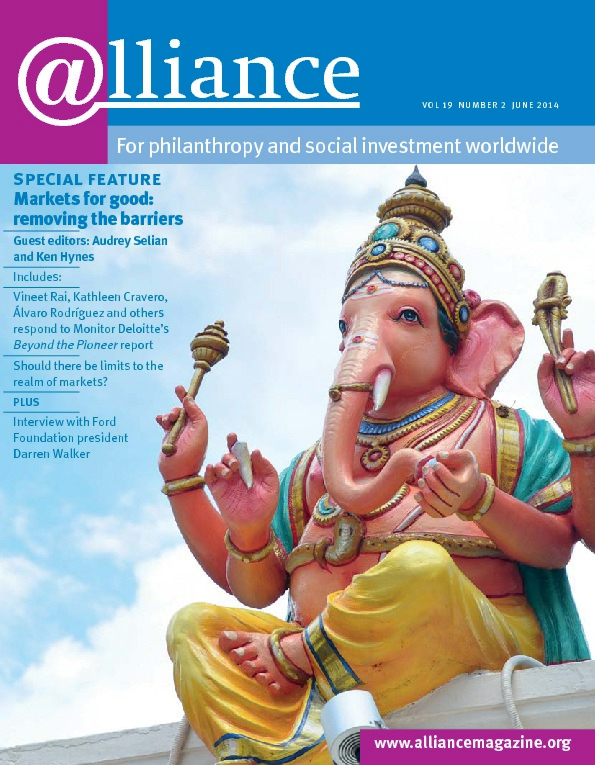Monitor Deloitte’s Beyond the Pioneer report raises interesting issues about businesses that work with the poor. It suggests that real scale can be achieved only by developing the industries arising from these pioneer businesses and stresses the role of industry facilitators in helping to create these so-called industries. Both points are prima facie reasonable, but my 20 years’ experience in India as a practitioner, entrepreneur and investor cautions me against accepting them.
My first divergence of opinion with the report is with the main example it draws on in its arguments about scale. The report cites microfinance in India as an example of transition from pioneering business model to fully functioning industry, and points out that a lot of exceptional institutions – multilaterals, national institutions, facilitators and banks – played an important role in providing a strong ecosystem, which allowed microfinance to thrive and replicate.
But I don’t agree that microfinance has become a fully functioning industry. I see microfinance as a brilliant disruptive process innovation that allows poor people to substitute physical collateral with social collateral and allows the process of financial inclusion through credit to take place. But it remains firmly part of the banking industry and has never graduated to an industry itself. Every microfinance institution of any scale and concerned with the idea of proper financial inclusion aspires to be a bank, as this is what effectively completes its move into mainstream industry.
Microfinance has thus helped banks to reach a customer base that was previously seen as unbankable. Some of the largest private banks in India now have microfinance portfolios that are large enough to compete with the biggest microfinance institutions. Reserve Bank of India’s likely granting of a banking licence to Bandhan, India’s largest MFI, would complete and validate this mainstreaming process. These developments leave no doubt that what is happening here is not the growth of a new industry, but the absorption of a disruptive innovation into an existing one.
Extending my argument to the broader impact enterprise sphere, I would say that impact enterprises are disruptive innovations to help industry deal with the challenges of reaching out to a very difficult customer base. As is happening with microfinance, these innovations scale when an ecosystem emerges around them and facilitates their convergence with the mainstream industry.
My other point is linked to regulation and its role, where I think the report has missed an important point. It largely characterizes the role of regulation as either inhibiting or facilitating the building of impact enterprises, but fails to explore its potential as a trigger for growth and scaling.
With the emergence and scaling of microfinance in India still in mind, the regulator deserves much credit for forcing the banks to look for businesses that had the ability to deliver credit to people at the base of the pyramid by tweaking priority sector lending norms. The scale of Indian microfinance was a consequence of that tweaking. It was funded and then scaled up by one leading Indian private sector bank, with the whole banking industry later following suit. The role of facilitators is important in building the ecosystem that supports the absorption of the disruptive innovation into an industry, not in building the new industry as the report insists.
At Aavishkaar and Intellecap we have lived with that approach for the last 14 years. We have focused on building the entire ecosystem of the impact investing space as distinct from trying to build a specific industry. We believe that our role as an investor and facilitator is to galvanize those who are working from the perspective of the final customer in various industry segments. Our belief is that disruption is crucial for any industry – rural BPO, low-cost health, education or financial services delivery – that wants to rethink its approach to customers who are difficult to reach. Ecosystems that nurture these disruptive innovations also need to bring the mainstream industry into direct interaction with them to remove the perception of mutual threat and to increase familiarization and adoption.
My final comment on this excellent report is about so-called ‘push products’. The report’s findings that what we believe is good for the masses living at the base of the pyramid may not be exciting or interesting enough for them to spend money on is an important truth that most do-gooders discover late in their businesses.
Vineet Rai is founder of Aavishkaar and Intellecap. Email vineet@aavishkaar.in




Comments (0)